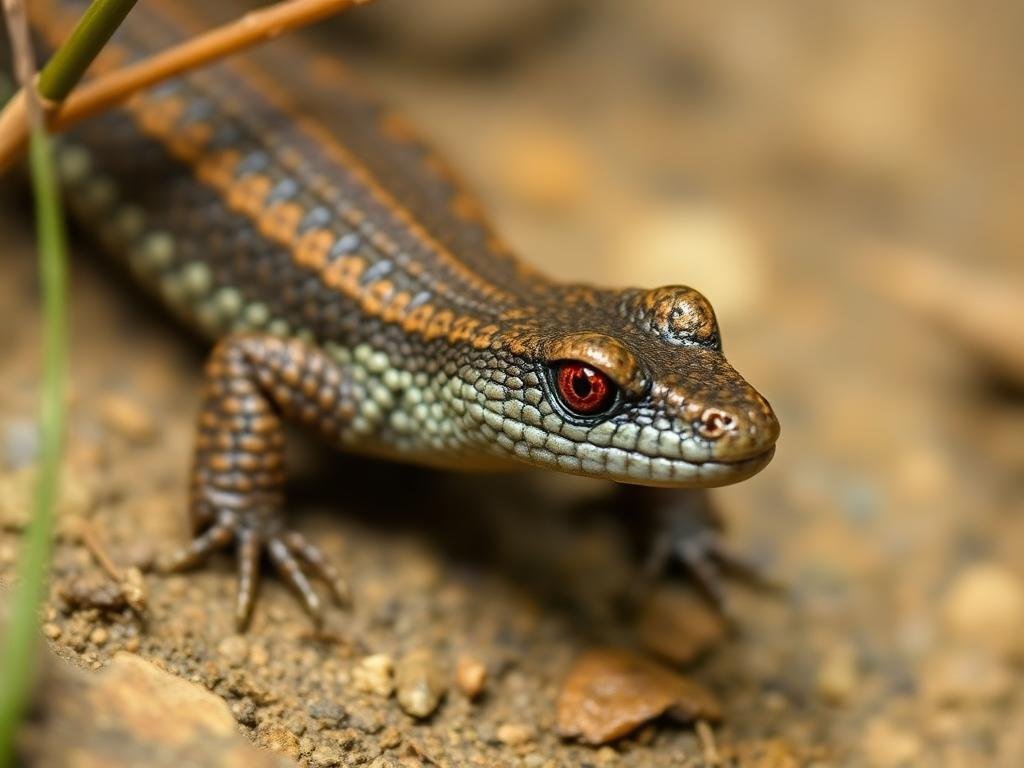Crocodile skink is most of the time interesting and fun to take care of if one has the passion of animality. Living on forest grounds of Southeast Asia, these small reptiles are being characterized by spiny scales and orange-red eye-ring like mini crocodiles. Such species are adapted to living in ground layers with plenty of fallen leaves and moss, so they are highly suitable for biotope-oriented adepts. Although they can from time to time be dealt with, they have one major character trait which is that they should be dealt with as little as possible.
Housing Requirements
The habitats of these skinks must capture a large area and offer a layout that will assist in their survival.
- Tank Size: Depending on the person’s size, a suitable size is a terrarium of the following dimensions: 90 cm wide, 45 cm high and 45 cm deep.
- Water Source: It is recommended to have a pool, waterfall, or a stream to support constant shipment of humid air inside and to provide for normally prohibited behaviours.
- Enrichment: Place chalk, logs, stones and greens that will challenge your pet physically and intellectually.
- Proper housing set up enables the skink to stay put and, in the process, replicate natural habitats and conditions.

Heating and Lighting
Temperature and lighting remain one of the most important factors you must consider if you want to ensure the health of your skink.
- Basking Temperature: Keep one corner of its enclosure at 30-32°C during the day with a heat bulb or ceramic heat emitter with a temperature control.
- Nighttime Temperature: Let the temperature briefly decrease to approximately 15°C during night.
- UVB Lighting: The best source of light should be a UVB bulb such as the “Arcadia T5 6% or Shade Dweller” of for heights that respectively. Change the bulb once within a year.
Make certain to keep hides on both sides of the tank, to let your skink to control the level of heat for its body.
Humidity
Clouds also bring the natural moisture is essential for the health of the Red-Eye Crocodile Skinks.
- Ideal Humidity: Humidity should be kept ranging from 70-90% using soil, moss and watering the plant often with mist.
- Live Plants: Use live foliage This will increase humidity naturally and add beauty to your enclosure.
- Foggers: This fogger can help make the space appear warmer, or whatever you want it to be, with a humidifying affect.
- Pay particular attention to the level of humidity; lack of it will lead to dehydration assists in shedding.
Diet and Feeding
Meals of these skinks are taken from insects which categorizes them as living food consuming animals.
- Preferred Foods: Provide them with crickets and cockroaches, locusts and earth worms and small snails and calci worms.
- Supplementation: Dust prey with calcium and multivitamin supplements to make certain prey have the appropriate proportions of nutrients.
- Feeding Schedule: Those without a specific medical condition should feed the baby every other day with occasional starve days so that the baby does not get overweight.
Feeding your skink a diet of mixed components guarantees that the pet is fit and active all the time.
Handling Tips
Crocodile skinks are surprisingly delicate and agile in the wild as it were.
- Handling Frequency: They should only interact with it few times in a day to prevent straining itself.
- Individual Variation: This generally means that each skink will be different when it comes to handling and thus should be observed as not all will have the same tolerance as the next.
Always be very careful with them and if at any one time they look uncomfortable simply put them back to their cage.
Species Profile
- Scientific Name: Tribolonotus gracilis
- Adult Size: 8-10 inches
- Habitat: Forest grounds in the SEA region; forests, around water sources, and often within areas with lush vegetation
- Enclosure Size: 90 x 45 x 45 cm
- UVB Requirement:1-2 UVI (6% biomass of T5 or Shade Dwellers)
- Lifespan: 7-10 years
- Temperature Gradient: 20-32°C
- Humidity: 70-90%
- Diet: Moving fresh food such as crickets or locusts or earth worms
Conclusion
Crocodile Skinks are bright, lively and fancy reptiles which will turn into your friends if they reveal interesting actions. These hardy skinks typically can get sick or die only if they starve, are put in wrong conditions, or are treated roughly. Just watching these one in a kind behaviors can be fun as much as when you try and mimic their natural environment at home which should be done.


